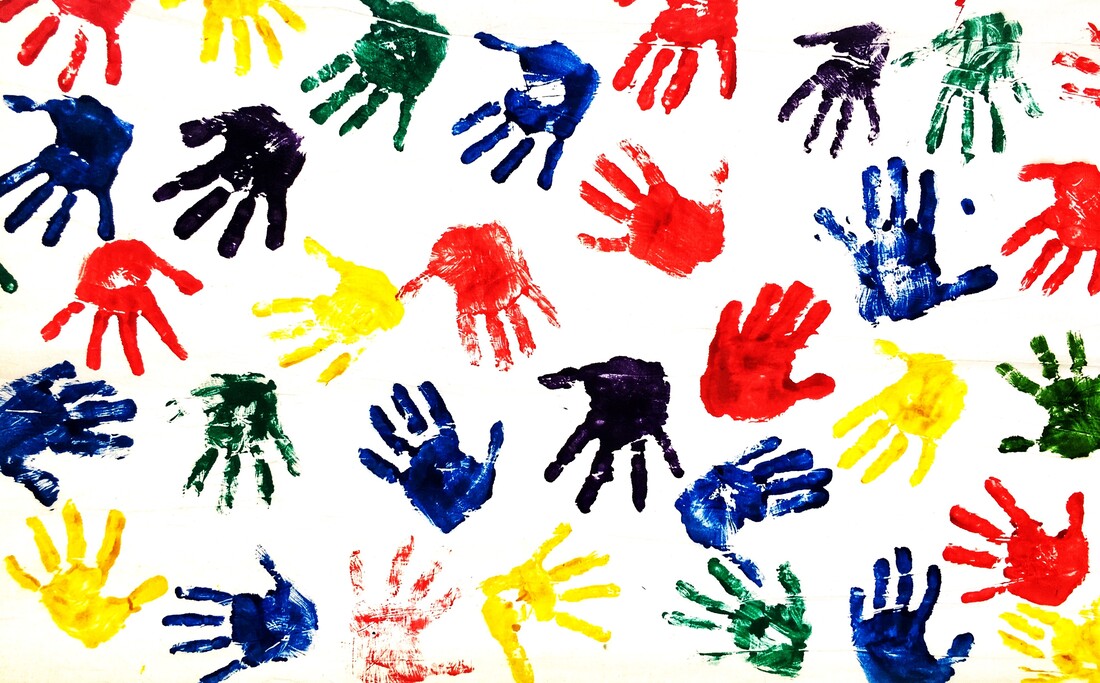|
‘Intuition is like reading a word without having to spell it out.’ (Agatha Christie) I had the privilege of training an inspiring, cross-cultural group of participants in South Africa, Rwanda and the UK this week who work in different roles in the same international non-governmental organisation (INGO). This online Action Learning Associates programme was designed to enable them to facilitate Action Learning sets (that is, groups) confidently and effectively. (If you’re unfamiliar with the concept of Action Learning, it’s a semi-structured, small-group, peer-coaching process that’s used widely in leadership and management development programmes and as part of wider organisation development (OD) initiatives). One of the areas we touched on during the training event is the value of drawing on intuition when facilitating groups. We could consider the facilitator’s role simply in terms of a series of tasks, e.g. introducing a meeting; leading a check-in; contracting ground-rules; guiding the group through the sequential steps of an Action Learning process; facilitating a review at the end. These are important elements that we learn to handle skilfully. At a deeper level, however, we can learn to tune into our intuition. This will help us to discern, for instance, unspoken issues; underlying group dynamics; or when a person-group is stuck or ready to move on. Intuition can feel mysterious, a sense of ‘knowing’ that we may experience bodily or as a feeling rather than as a rational concept in our mind. One of most mysterious experiences I had was when training a group of church and community leaders in Action Learning facilitation. When I first encountered one of the participants, the word ‘Ruth’ kept coming to mind. I mentioned this to him very tentatively and he looked astonished. Apparently, he was about to complete a PhD study on the book of Ruth in the Bible. I had no idea. For me, spiritual discernment sits close to intuition. I always pray deeply before coaching or facilitating a set. How do you draw on intuition in your own life and practice? I’d love to hear from you!
10 Comments
‘Stop imagining. Experience the real. Taste and see.’ (Claudio Naranjo) Early predictions that electronic reading technologies would supersede the need for physical paper books proved unfounded. There’s something about holding a book, turning the pages, feeling the paper and smelling the ink that feels tangibly different to viewing text on screen. It’s something about reading as an experiential phenomenon that goes further and deeper than passively absorbing visual input. We’re physical beings and physical touch, movement and feeling still matter to us. I’ve noticed something similar in coaching conversations, stimulated by studies and experiments in the field of Gestalt. Against that backdrop, using physical props that invite physical interaction with those props can create shifts at psychological levels too. I have 4 different packs of cards available*, alongside other resources, and I notice that holding, sifting through and laying out cards can sometimes feel more engaging and stimulating for a client than thinking and talking alone. Each pack has a different purpose and focus. All involve inviting a client to flick through the cards to see which images, words, phrases or questions resonate for them here-and-now. It’s as if, at times, we’re able to recognise someone or something that matters to us, is meaningful for us, by touching and viewing it ‘out there’, rather than ‘in here’. The cards also enable a client, team or group to move or configure them in experimental combinations to see what insights, themes or ideas emerge. (*The Real Deal; Empowering Questions; Gallery of Emotions; Coaching Cards for Managers) ‘Votes are cast based on rational decisions, right?’ (Zaria Gorvett) As I watched the former leader of a very influential nation speak on TV last night with what came across (to me, at least) as a mishmash of delusions and mistruths, I felt, to put it mildly, both bemused and dismayed. This felt even more so because current polls in that country point to a distinct possibility, if not yet a probability, that that person could actually be re-elected to that position of power. I found myself asking myself, ‘What kind of craziness would compel people to vote for this person? How can’t they see through the nonsensical and narcissistic rhetoric?’ Shaking my head with a deep sigh, I got up to make a cup of tea. Suddenly (I don’t know if it was the caffeine), a revelation hit me. I flashed back to some years ago in Germany, watching a 1-hour interview with Angela Merkel on TV. She was at the height of her leadership that year and, to be honest, I could hardly understand a word she said. My German language skills simply weren't up to it. Yet, somehow…I found her absolutely mesmerising. Something about her style, presence and tone subtly seduced me. I would have voted for her. I would have married her! Maybe. This took me back, next, to the Brexit-EU psychodrama in the UK. At that time, arguments flew back and forth vociferously in favour of Leave or Remain. Little I heard on either side bore much resemblance to evidential reality. Noticeably, most people I spoke with voted on instinct, on gut-feel intuition, and were swayed little by spurious claims or counterclaims. Boris Johnson, who won that game (by a narrow margin), played subconsciously on cultural memories of Winston Churchill, the lone hero who stood alone against overwhelming internal and external odds. So, an ex-President, an ex-Bundeskanzlerin and an ex-Prime Minister. It's far more than the words they say. It’s what they symbolise and represent. It’s how they make people feel. ‘To understand is to perceive patterns.’ (Isaiah Berlin) According to Gestalt psychology, human beings are hard-wired to see things in patterns. Take, for instance, a tree. If I were to invite you to imagine a tree, it’s likely you would imagine the whole tree (well, at least that part of the tree that is visible above ground). I wouldn’t imagine that you’d picture all its constituent elements separately – cells, leaves, twigs, branches etc. Unless you’re dissecting a tree in a botanical lab. It’s essentially the same idea in music. When we listen to a melody, we hear the tune as a whole, not each individual note separately from the others. In fact, if we were to examine each note in turn in isolation, it’s unlikely we’d be able to discern what melody they form part of when clustered together in a specific configuration. Except, perhaps, if we’re learning to play an instrument and focusing intently on one note at a time. Now this intuitive ability can be a real gift when working with teams, groups, organisations – or even making sense of geopolitics. It means learning to step back from the immediate issue or event and, metaphorically, to narrow our eyes into a near-squint to allow a bigger picture, a wider system, a deeper meaning, the wood for the trees, to emerge. Khalil Gibran observed, ‘the mountain is clearer to the climber from the plain.’ I recognised this phenomenon at work this last week when, in the Netherlands for the first time, the more I relaxed and allowed the language to flow over me, the more of it I could understand. When I paid too much attention to individual words, the more I got stuck. There are parallels in Timothy Gallwey’s Inner Game. Beware paralysis of analysis. Take a breath, relax your grip and notice what surfaces into awareness. 'Language is a process of free creation.' (Noam Chomsky) A talented linguist and disciple of Noam Chomsky invited Jacob, a young German student, to reflect on which of two sample sentences in English was correct. Jacob was unsure about the exact meaning and structure of the phrases yet, gesturing with his hand to his chest, he then pointed thoughtfully at one and said, ‘I don’t know, but it feels like it’s this one.’ I was stunned. He was correct, and he didn’t know how or why. The teacher explained. Jacob has been exposed over time to English via e.g. social media, computer games etc. He somehow knows the answer; less analytically and more intuitively. I flashed back in my own memory to a time when, as a teenager, I was learning French at school. I had a hunch, an idea, that if I played French radio in the background in my room, I too would become tuned into the language even if I didn’t understand anything that was being said. Over time, I did start to distinguish one word from another, then to notice recurring words, then to become aware of the contexts in which certain words or phrases were used. I started to hear the accent, word stress and intonation. It wasn’t a conscious process so much as, like an infant child, a learning of language by immersion. This linguist then invited a wider group of students to play a fast-paced game that involves using lots of different words in English. They didn’t necessarily know or understand the words and the teacher, a speaker of five languages, didn’t translate them. I was puzzled by this and asked why. Pointing to Chomsky, she took me back to the same core principle I had discovered for myself as a teenager. The students don’t know the meaning of the words now, but when in future they hear them used in context, the words and meanings will connect. Immersion enables deep language-learning by intuition. ‘Where words fail, music speaks.’ (Hans Christian Andersen) Music, like all forms of art, can bypass the rational filters of our minds and express or transport a message, a mood, deep into our bodies and souls. Many of the earliest musical influences on my own life had a profoundly existential feel, including Pink Floyd’s Time and Supertramp’s Logical Song. These songs have continued to carry that same resonance throughout my life, reflecting and reinforcing a deep sense of restlessness, resistance and reaching. Others have had a more overtly spiritual influence, including Tim Rice’s and Andrew Lloyd Webber’s Jesus Christ Superstar and U2’s Under a Blood Red Sky. They lifted me out of myself, helped make sense of what I knew and felt intuitively and galvanised my stance of faith. Some gave voice to the deep angst and discordant dissonance I felt in my life and in the world, including David Bowie’s Scream Like a Baby and The Saints’ This Perfect Day. What music or songs have had the deepest resonance or impact in your life? In its now-classic album, Hemispheres, Canadian rock band, Rush, sing a dramatic story of a cosmic struggle between competing gods of love and reason; each determined to rule humanity on its own terms. It’s a creative mythological account of the very real dilemmas and tensions we face and experience in human decision-making of head vs heart. (If interested in a faith dimension, we can see this polarity resolved in Jesus, described in the Bible as ‘full of grace and truth’, and in his call to be ‘wise as serpents and tame as doves’). Yet, how hard it is to do this in practice. It becomes more complex if we get caught up in emotional reasoning: ‘…the condition of being so strongly influenced by our emotions that we assume that they indicate objective truth. Whatever we feel is true, without any conditions and without any need for supporting facts or evidence’ (Therapy Now, 2021). It’s a blurring of heart and head so that the former appears to us, as if self-evidently, the latter. Betts and Collier, in their thoughtful review of refugee policy (Refuge, 2017) liken this to a ‘headless heart’; a decision driven by emotional response without due regard for consequences. A person may hold the opposite extreme, the ‘heartless head’, where he or she believes every decision must be informed or supported by rational thinking or objective evidence - and emotion or intuition are disregarded as irrelevant or unsound. We see this in cultural environments where, as Eugene Sadler-Smith observes, leaders feel compelled to post-rationalise intuitive decisions in order to make them more acceptable to colleagues (Inside Intuition, 2007). It’s a stance that risks dismissing beliefs, values and other dimensions of sense-making, motivation and experience. John Kotter brings words of wisdom here (Leading Change, 2012): to pay attention to our own default biases and to take account of those of others too, if we’re seeking to influence change. On presenting vision, he offers a helpful rule of thumb, ‘convincing to the mind and compelling to the heart’. The Myers-Briggs Type Indicator (MBTI) provides useful insight into different preferences that influence decision-making too. Rush’s epic song ends with its own solution: ‘Let the truth of Love be lighted, let the love of Truth shine clear…with Heart and Mind united in a single perfect sphere.’ ‘If you don’t stick to your values when they’re being tested, they’re not your values.’ (Jon Stewart)
We sometimes discover what our values are when someone behaves, or something happens, that cuts sharply across them. It can be like a glass filled with liquid that gets knocked. We find out what’s inside when we see what spills out. At times, we’re surprised to find that our true values are quite different to those we espouse or identify with rationally. We don’t just think values. We feel them. Gut level, heart-wrenching feeling. If you don’t feel it when challenged or experiencing a clash, it doesn’t matter enough to you. If in doubt, shake the tree, see what falls and feel it land. Impact. I was sitting in an awkward circle during a coaching workshop. It was one of those activities where a group is placed in a room with no instructions and no guidance, to see what emerges. I felt curious as a conversation gradually unfolded… until, that is, a forceful-sounding man assumed the role of leader and put down a shy-looking woman sitting opposite me. Without thinking, I leapt straight to her defence and challenged the power figure, as if the woman needed saving. The group remarked later on my response – and that’s when I became aware of Stephen Karpman’s Drama Triangle. It wasn’t a rationale that had triggered me but a behaviour that crossed a deeply-held value. That was some years ago now and, although I no longer default to rescue mode, it helps in part to explain why so much of my life and career have been dedicated to international development, advocacy and relief work. I’m a follower of Jesus, I hate that the poor are so vulnerable and I want my life to make a difference. What gets you up in the morning or keeps you awake at night? What are your true values, and how do you know? If push comes to shove, what are the lines that you will not cross? 'There is a voice that doesn’t use words. Listen.’ (Jalal ad-Din Rumi) I spoke with a friend and colleague recently. It was about a bizarre incident in the news where a group of leaders acted over a serious issue in a way that was clearly ineffective and self-defeating. Somewhat bemused by this, I found myself musing out loud, ‘What were they thinking?’ My friend responded wisely, ‘They weren’t thinking. They were driven by an overwhelming feeling.’ How easy it is to assume rationality in decision-making where, at times, emotion may play a far greater part. It reminded me of many years ago when I became a passionate and pained activist for human rights in Central America. It was during a period when governments and allied death squads committed acts of unspeakable horror against the poor. Alongside fellow activists, I burned myself out for the people and for the cause. On reflection, however, I’m not sure what practical difference my efforts made. A co-activist commented in retrospect, ‘We were driven more by instinct than strategy.’ Such accounts could lead us to propose that rationality is far superior to emotion or instinct when it comes to decision-making and effectiveness. We could conclude that to think-things-through is the best course of action, prior to action. ‘You didn’t really think this through, did you?’ is a culturally-coded message that signals to a person, ‘You idiot!’, or, in more gentle diplomatic language, ‘If you had thought about this more carefully beforehand, you would have achieved a better outcome.’ On this note, Prof Eugene Sadler-Smith sheds some intriguing light. He discovered that some of the best leadership decisions are informed by intuition, not by rational process, and that leaders often post-rationalise their decisions if rationality is valued personally or culturally as more acceptable, reliable or sound than emotion or intuition. This revelation calls for a critical-creative balance of intuition and rationality, with each inspiring, informing and testing the other. What do you think? What’s your intuition telling you? A baptism of fire. I had just moved to the city. It was a new community development project. On a local housing estate, a gang of youths was harassing residents at night. This mostly involved stopping people at knife-point or setting fire to litter stacked against people’s house doors. Here was my mission…if I chose to accept it: to work at night, infiltrate the gang, stop what they were doing and convince them to do something more constructive with their lives. I was 21 years old, wore an earring, combat trousers, white trainers and black leather jacket. They thought I should fit in.
I worked alongside Dan, an experienced detached youth worker. We set out at 10pm each evening, wandered the streets and hoped to find the gang. I wondered what would happen when we did. The youth worker gave me two practical words of advice: ‘1. Always carry money and, 2. Always ensure we are outnumbered.’ I felt puzzled, laughed nervously and replied, ‘Surely you mean 1. Never carry money and, 2. Always ensure we outnumber them? Isn’t that a better way to stay safe?’ This was my first encounter with counterintuitive thinking in youth and community development work. Dan elaborated: ‘If a gang tells you to hand over your money and you do, they are likely to leave you alone. If you say you have no money, they probably won’t believe you and may well attack you to rob you.’ I responded, ‘Oh – and outnumbered..?’ He replied, ‘If we outnumber them as we approach them, they may feel threatened and attack us. If they outnumber us, they are less likely to feel threatened and more likely to be curious.’ Later that night, we did find the gang huddled under a dim street light. Dan walked casually into their midst, lit a cigarette, smiled…and said, ‘Hi.’ DeBono calls this lateral thinking. It’s a way of approaching a person or situation that involves challenging default perceptions, instincts, logic, decisions and actions and trying out radical alternatives instead. It’s like the judo teacher who instructs, ‘If an aggressive person grabs you by the lapels and pulls you forward, walk towards them rather than instinctively pull back.’ Jesus modelled it to dramatic effect. It can feel mind-bending, universe-warping, paradigm-shifting. It can be hard to do. Yet it can also yield creative and innovative results. What have been your best counterintuitive moments, insights and ideas? |
Nick WrightI'm a psychological coach, trainer and OD consultant. Curious to discover how can I help you? Get in touch! Like what you read? Simply enter your email address below to receive regular blog updates!
|












 RSS Feed
RSS Feed